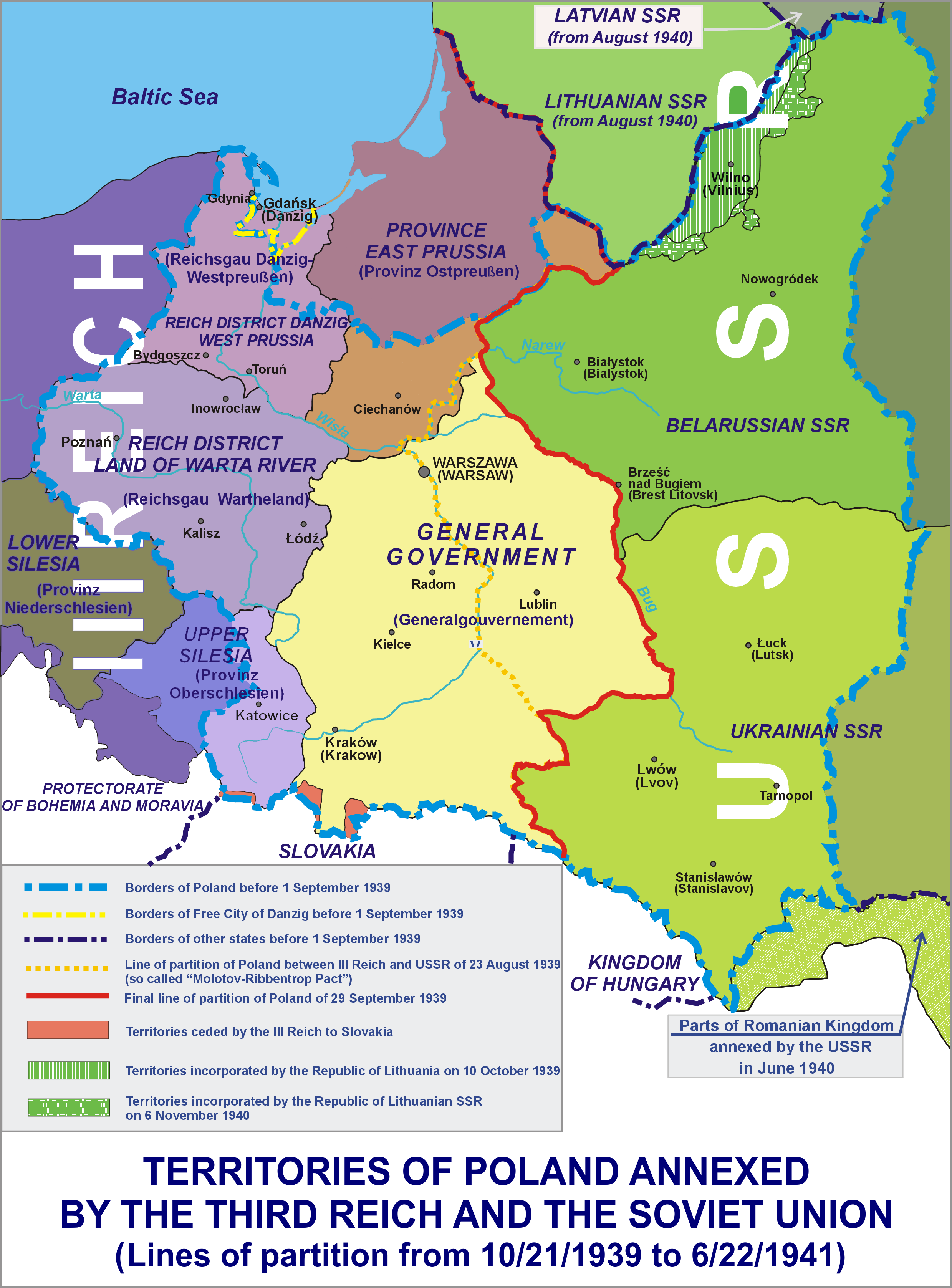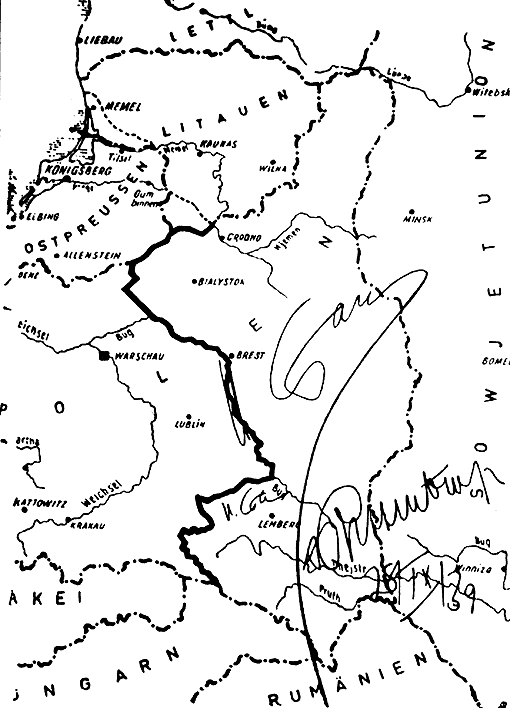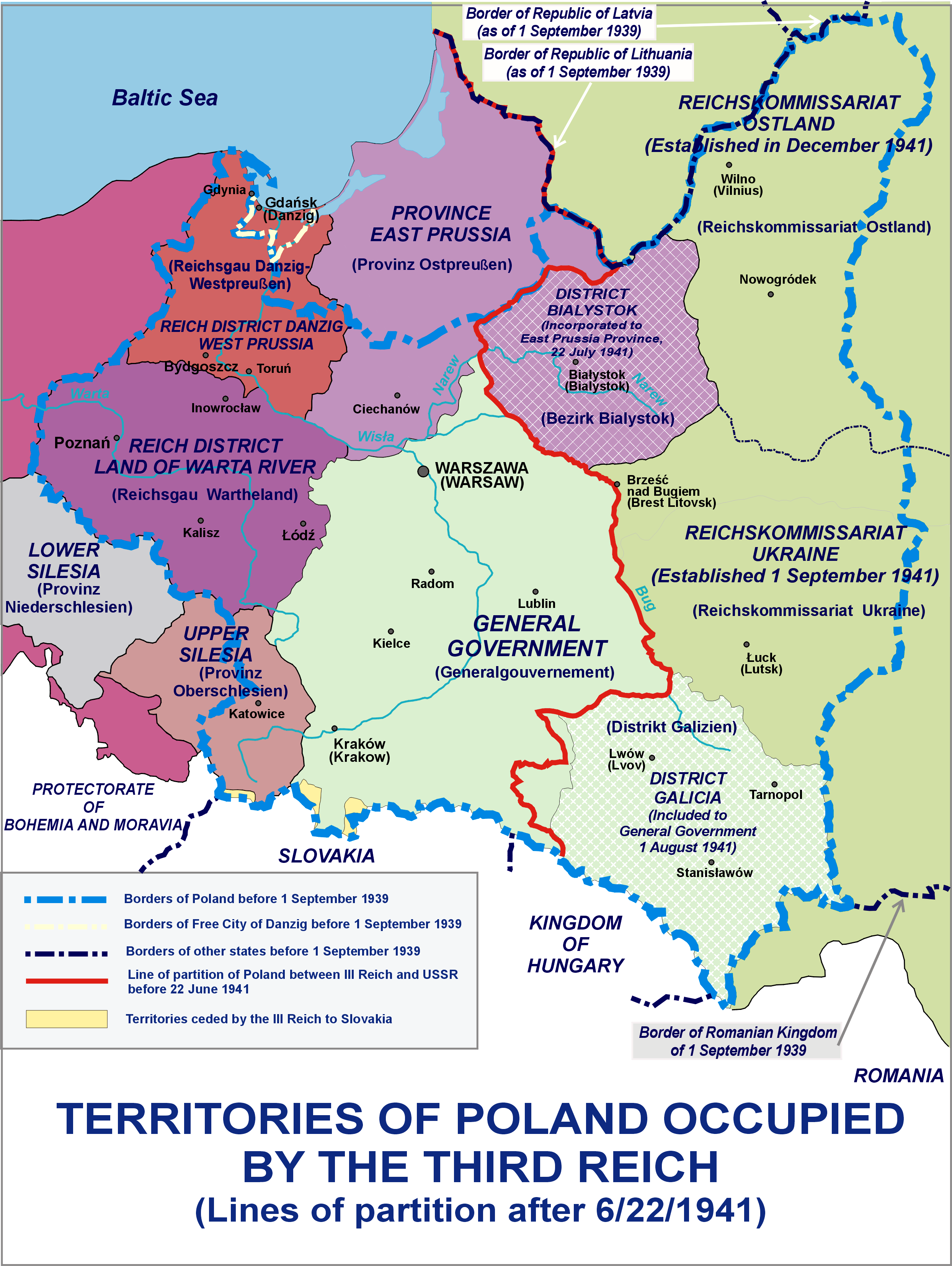|
1939–40 Gauliga
The 1939–40 Gauliga was the seventh season of the Gauliga, the first tier of the football league system in Germany from 1933 to 1945. It was the first season held during the Second World War. The league operated in eighteen regional divisions with the league containing 216 clubs all up, 41 more than the previous season. The majority of Gauligas were regionally sub-divided during the season, with finals or final rounds played to determine the champions. The league champions entered the 1940 German football championship, won by FC Schalke 04 who defeated Dresdner SC 1–0 in the final. It was Schalke's fifth national championship, with the club winning six championships all up during the Gauliga era. The 1939–40 season saw the sixth edition of the ''Tschammerpokal'', now the DFB-Pokal. The 1940 edition was won by Dresdner SC, defeating 1. FC Nürnberg 2–1 on 1 December 1940. The number of Gauligas, eighteen, remained unchanged compare to the previous season which had seen ... [...More Info...] [...Related Items...] OR: [Wikipedia] [Google] [Baidu] |
Gauliga
A Gauliga () was the highest level of play in German football from 1933 to 1945. The leagues were introduced in 1933, after the Nazi takeover of power by the National Socialist League of the Reich for Physical Exercise. Name The German word ''Gauliga'' is composed of Gau, approximately meaning county or region, and ''Liga'', or league. The plural is ''Gauligen''. While the name Gauliga is not in use in German football any more, mainly because it is attached to the Nazi past, some sports in Germany still have Gauligen, like gymnastics and faustball. Overview The Gauligen were formed in 1933 to replace the previously existing Bezirksligas in Weimar Germany. The Nazis initially introduced 16 regional Gauligen, some of them subdivided into groups. The introduction of the Gauligen was part of the ''Gleichschaltung'' process, whereby the Nazis completely revamped the domestic administration. The Gauligen were largely formed along the new Gaue, designed to replace the old German s ... [...More Info...] [...Related Items...] OR: [Wikipedia] [Google] [Baidu] |
Czechoslovak First League
The Czechoslovak First League ( cs, 1. fotbalová liga, sk, 1. futbalová liga) was the premier football league in the Czechoslovakia from 1925 to 1993, with the exception of World War II. Czechoslovakia was occupied by German forces who formed Gauliga Sudetenland and Gauliga Böhmen und Mähren leagues on occupied territories. Until the 1934-35 season, no teams from Slovakia participated in the league. Czechs were allowed to run their own league in the Protectorate of Bohemia and Moravia, while Slovaks were granted their own independent Slovak State and created their own league. After the World War II the league was recreated. Description The league was dominated by clubs from Prague with Sparta Prague winning 19 titles, Dukla Prague 11 and Slavia Prague 9. The attendance record for the league was set on 4 September 1965, when 50,105 spectators attended a match between rivals Sparta and Slavia in Prague. The Czechoslovak First League was succeeded in 1993 by the Czech First ... [...More Info...] [...Related Items...] OR: [Wikipedia] [Google] [Baidu] |
Gauliga Bayern
The Gauliga Bayern was the highest association football league in the German state of Bavaria from 1933 to 1945. Shortly after the formation of the league, the Nazis reorganised the administrative regions in Germany, and the five ''Gaue'' ''Bayreuth'', '' Munich-Upper Bavaria'', ''Swabia'', '' Main Franconia'' and ''Franconia'' ''de facto'' replaced the state of Bavaria which remained only as a symbolic region. Overview The league was introduced by the Nazi Sports Office in 1933, after the Nazi takeover of power in Germany and Bavaria. It replaced the ''Bezirksliga Bayern'' as the highest level of play in German football competitions. Up until 1963, Germany did not have a nationwide highest league but rather operated on regional divisions with the winners of those entering a finals round for the German championship. The ''Gauliga Bayern'' was established with twelve clubs from the state of Bavaria, but without any teams from the Palatinate region (German:''Pfalz''), then polit ... [...More Info...] [...Related Items...] OR: [Wikipedia] [Google] [Baidu] |
Gauliga Baden
The Gauliga Baden was the highest football league in the German state of Baden from 1933 to 1945. Shortly after the formation of the league, the Nazis reorganised the administrative regions in Germany, and the ''Gau Baden'' replaced the state ''Baden''. Overview The league was introduced in 1933 by the Nazi Sports Office, after the Nazi take over of power in Germany and Baden. It replaced the ''Bezirksliga'' as the highest level of play in German football competitions. The ''Gauliga Baden'' was established with ten clubs, all from the state of Baden. The Gauliga replaced as such the ''Bezirksliga Württemberg-Baden'' and ''Bezirksliga Rhein-Saar'', the highest leagues in the region until then. In its first season, the league had ten clubs, playing each other once at home and once away. The league winner qualified for the German championship while the bottom two teams were relegated. The league remained unchanged until the outbreak of World War II. In this era, the only succes ... [...More Info...] [...Related Items...] OR: [Wikipedia] [Google] [Baidu] |
SV Waldhof Mannheim
SV Waldhof Mannheim is a multi-sports club, located in Mannheim, Baden-Württemberg. It is most known for its association football team; however, there are also professional handball and table-tennis sides. The club today has a membership of over 2,400. History The club was founded 1907 and played in the second division of the ''Westkreis-Liga'' before the First World War. ''Waldhof'' became part of the Kreisliga Odenwald in 1919 and won this league in 1920 and 1921. In each of those seasons, the club failed to advance in the Southern German championship because it was grouped with all-powerful 1. FC Nürnberg at the time. The club took a Bezirksliga Rhein championship in 1924 before joining the Bezirksliga Rhein-Saar in 1927, where it won five out of the next six division titles without ever performing particularly well in the Southern championship. Its enjoyed its best performances in the Gauliga Baden, one of sixteen top-flight divisions established through the 1933 re-organi ... [...More Info...] [...Related Items...] OR: [Wikipedia] [Google] [Baidu] |
Nazi Germany
Nazi Germany (lit. "National Socialist State"), ' (lit. "Nazi State") for short; also ' (lit. "National Socialist Germany") (officially known as the German Reich from 1933 until 1943, and the Greater German Reich from 1943 to 1945) was the German state between 1933 and 1945, when Adolf Hitler and the Nazi Party controlled the country, transforming it into a dictatorship. Under Hitler's rule, Germany quickly became a totalitarian state where nearly all aspects of life were controlled by the government. The Third Reich, meaning "Third Realm" or "Third Empire", alluded to the Nazi claim that Nazi Germany was the successor to the earlier Holy Roman Empire (800–1806) and German Empire (1871–1918). The Third Reich, which Hitler and the Nazis referred to as the Thousand-Year Reich, ended in May 1945 after just 12 years when the Allies defeated Germany, ending World War II in Europe. On 30 January 1933, Hitler was appointed chancellor of Germany, the head of gove ... [...More Info...] [...Related Items...] OR: [Wikipedia] [Google] [Baidu] |
Occupation Of Poland (1939–45)
Occupation commonly refers to: *Occupation (human activity), or job, one's role in society, often a regular activity performed for payment *Occupation (protest), political demonstration by holding public or symbolic spaces *Military occupation, the martial control of a territory *Occupancy, use of a building Occupation or The Occupation may also refer to: Arts and entertainment * ''Occupation'' (2018 film), an Australian film *Occupation (2021 film), a Czech comedy drama film * ''Occupation'' (TV series), a 2009 British drama about the Iraq War * "Occupation" (''Battlestar Galactica''), a 2006 television episode * "The Occupation" (''Star Wars Rebels''), a 2017 television episode *''The Occupation'', a 2019 video game *''The Occupation'', a 2019 novel by Deborah Swift See also *Career, a course through life *Employment, a relationship wherein a person serves of another by hire *Job (other) *Occupy (other) *Position (other) *Profession, a vocation *Stand ... [...More Info...] [...Related Items...] OR: [Wikipedia] [Google] [Baidu] |
Polish Areas Annexed By Nazi Germany
Following the Invasion of Poland at the beginning of World War II, nearly a quarter of the entire territory of the Second Polish Republic was annexed by Nazi Germany and placed directly under the German civil administration. The rest of Nazi-occupied Poland was renamed as the General Government district. The annexation was part of the "fourth partition of Poland" by Nazi Germany and the Soviet Union, outlined months before the invasion, in the Molotov–Ribbentrop Pact.Maly Rocznik Statystyczny (wrzesien 1939 – czerwiec 1941), Ministerstwo Informacji i Documentacji, London 1941, p.5, as cited in Piotr Eberhardt, Political Migrations in Poland, 1939–1948, Warsaw 2006, p.4 Some smaller territories were incorporated directly into the existing Gaue East Prussia and Silesia, while the bulk of the land was used to create new '' Reichsgaue'' Danzig-West Prussia and Wartheland. Of those, Reichsgau Wartheland was the largest and the only one comprising solely the annexed terr ... [...More Info...] [...Related Items...] OR: [Wikipedia] [Google] [Baidu] |
General Government
The General Government (german: Generalgouvernement, pl, Generalne Gubernatorstwo, uk, Генеральна губернія), also referred to as the General Governorate for the Occupied Polish Region (german: Generalgouvernement für die besetzten polnischen Gebiete), was a German zone of occupation established after the invasion of Poland by Nazi Germany, Slovakia and the Soviet Union in 1939 at the onset of World War II. The newly occupied Second Polish Republic was split into three zones: the General Government in its centre, Polish areas annexed by Nazi Germany in the west, and Polish areas annexed by the Soviet Union in the east. The territory was expanded substantially in 1941, after the German Invasion of the Soviet Union, to include the new District of Galicia. The area of the ''Generalgouvernement'' roughly corresponded with the Austrian part of the Polish–Lithuanian Commonwealth after the Third Partition of Poland in 1795. The basis for the formation of the ... [...More Info...] [...Related Items...] OR: [Wikipedia] [Google] [Baidu] |
Gauliga Generalgouvernement
The Gauliga Generalgouvernement was the highest football league in Polish areas annexed by Nazi Germany after 1939, which were not incooperated into any of the ''Gaue'', the so-called General Government (German:''General Gouvernement''). The name ''Gauliga'' is somewhat misleading in this case as the region was not part of the ''Gau'' system. The league existed from 1941 to 1945. Overview The ''Gauliga Generalgouvernement'' was as such introduced by the Nazi Sports Office in 1941, but never actually became a proper league. It existed as a championship round for the four district champions of the General Government only, the four districts being: * Krakau ''(Kraków)'' * Lublin * Radom * Warschau ''(Warsaw)'' Polish clubs were not permitted to take part in the competition, only clubs from the German ethnic minority, which made up 2.3 percent of the overall population of Poland, or 741,000 people. [...More Info...] [...Related Items...] OR: [Wikipedia] [Google] [Baidu] |
Reichsgau Wartheland
The ''Reichsgau Wartheland'' (initially ''Reichsgau Posen'', also: ''Warthegau'') was a Nazi German ''Reichsgau'' formed from parts of Polish territory annexed in 1939 during World War II. It comprised the region of Greater Poland and adjacent areas. Parts of ''Warthegau'' matched the similarly named pre-Versailles Prussian province of Posen. The name was initially derived from the capital city, Posen (Poznań), and later from the main river, Warthe (Warta). During the Partitions of Poland from 1793, the bulk of the area had been annexed by the Kingdom of Prussia until 1807 as South Prussia. From 1815 to 1849, the territory was within the autonomous Grand Duchy of Posen, which was the Province of Posen until Poland was re-established in 1918–1919 following World War I. The area is currently the Greater Poland Voivodeship. Invasion and occupation of Poland After the invasion of Poland, the conquered territory of Greater Poland was split between four ''Reichsgaue'' and th ... [...More Info...] [...Related Items...] OR: [Wikipedia] [Google] [Baidu] |
Gauliga Wartheland
The Gauliga Wartheland was the highest football league in '' Gau'' ''Wartheland'' from 1941 to 1945. The ''Gau'' was made up from the former Polish Voivodeship of Poznań and parts of Warsaw Voivodeship and Łódź Voivodeship which had been occupied by Nazi Germany in 1939 and incorporated into the ''Third Reich''. The league and the region are named after the local river ''Warthe'' (Polish:''Warta''), and not after the Prussian province Posen, which it had been from 1848 to 1918. Overview The league was introduced by the Nazi Sports Office in 1941, a considerable time after the defeat of Poland. The league started out in two groups of five teams, with the two divisional champions playing each other in a home-and-away series to determine the ''Gauliga'' champion. The league champion then qualified for the German championship. Polish clubs were not permitted to take part in the competition, only clubs from the German ethnic minority, which made up between five and ten percent o ... [...More Info...] [...Related Items...] OR: [Wikipedia] [Google] [Baidu] |






